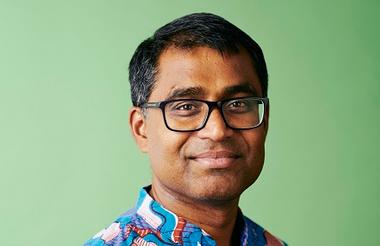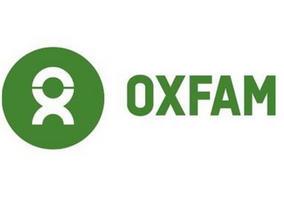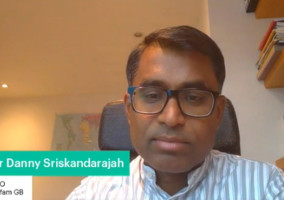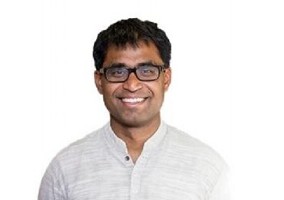Oxfam GB announced Danny Sriskandarajah as its chief executive in September 2018 at a time when the charity faced intense media and regulatory scrutiny over a series of safeguarding incidents, including those in Haiti in 2011.
The scandal had led to Sriskandarajah’s predecessor, Mark Goldring, making way for “fresh vision and energy”, while the charity was being investigated by the Charity Commission and unable to bid for UK government funding.
Four years later, the government has reopened the door after being impressed by the work Sriskandarajah and his team have done to improve safeguarding within the 80-year-old organisation.
It has been “a rocky few years”, Sriskandarajah says, but he is satisfied that changes to Oxfam’s systems, policies and culture are “being implemented”.
‘I was always interested in international development’
Sriskandarajah was born in Sri Lanka and initially raised in a rural community without electricity or running water. He and his family left the South Asian island just before its civil war began in the 1980s. His uncle had been killed and, as Sri Lankan Tamils, his family were “very conscious of rising levels of violence and insecurity”. They initially fled to Papua New Guinea, where Sriskandarajah’s parents temporarily worked, before settling in Australia.
This start to Sriskandarajah’s life shaped his outlook and potentially laid the seeds for his career in the charity sector.
“I was always interested in the world, partly because by the time I was 11 I had already lived in three different countries,” he says. “I was always interested in international development. I suppose being an immigrant in Australia was always interesting, with what was going on in Australia, but also around the world.”
Sriskandarajah's first links to Oxfam began in Australia. He took part in the long-running fundraising event, the Walk Against Want, to raise money for a charity which was then called Community Aid Abroad. The charity has since become Oxfam Australia, an affiliate of the Oxfam International confederation. He also set up a student chapter of the organisation at the University of Sydney.
‘I didn’t think I’d get an interview at Oxfam’
He moved to England, “just down the road from Oxfam’s headquarters”, to complete postgraduate degrees in international development at the University of Oxford. After finishing his studies, Sriskandarajah says his entrance to the UK charity sector was “sort of by accident”.
“I was finishing up my DPhil, knew that I didn't want to be an academic, and got a job in a think tank in London [IPPR], which is a registered charity.
“I started as a research fellow, but eventually got into management and ended up as deputy director, when I wasn't doing any research, I was doing charity management and fundraising, HR, new strategy, all the good stuff that we do.
“In the space of five years, I went from research fellow to deputy director and then got a call about a vacancy at something called the Royal Commonwealth Society, which was looking for a new director general, and applied and got that and that was my first CEO role in a charity. And then I've been in different charity sector CEO roles since.”
Sriskandarajah led global civil society membership body CIVICUS for six years, which he says taught him “how critical a vibrant civil society is to functioning societies or to democracy”.
Then when the role at Oxfam became available in 2018, given the intense scrutiny the charity faced, Sriskandarajah “did have to think twice” before applying.
“A friend of mine who had been a trustee said to me over lunch one day, as I was thinking about it: ‘real leaders run into the fire, not away from the fire’. I suppose a part of me goes, ‘well, of course, I'm a real leader’.
“But Oxfam, and many other big charities, have been under a lot of scrutiny in recent years. Their credibility has been challenged. And Oxfam in particular had made some serious mistakes around safeguarding.
“And so for me, the reason I did end up applying was I thought ‘this is an opportunity to take this really important big bit of civil society and improve it, modernise it’. I think in my application I said ‘this is an opportunity to reimagine what the big NGO is for’.
“I didn't think I would even get an interview. I still remember writing the letter to the chair saying ‘you need to address safeguarding failures, but there's a wider challenge which is around how power works’, because safeguarding was one manifestation of power being abused.”
He adds: “I was hesitant but applied because I thought it was an opportunity to transform or reimagine this amazing British institution.”
Grateful for opportunities
Looking back on his rise to Oxfam chief executive, Sriskandarajah says he feels “really lucky”.
“I often think that if my parents hadn't taken me out, most of my generation would have been caught in 30 years of civil war, boys of my age would have either been recruited into one of the warring groups in the civil war, such as the Tamil Tigers.
“For me, I've just been really grateful for so much, for the opportunities I've been given, going to the best universities in the world, and being provided scholarships to do all of that.
“So, I feel like I owe society a huge debt for the opportunities and the privileges I've been afforded. And it really frustrates me that lots of others don't get that, especially at the global level.”
Culture change
In February, Oxfam published its safeguarding plans for the next three years, which emphasised culture and leadership; policies, processes, and training; whistleblowing; and case management.
Since 2019, Oxfam has had all safeguarding cases externally audited. It now monitors whether complaints have been responded to within 24 hours, high risk cases reviewed every two weeks, standard risk cases reviewed every four weeks and what proportion are closed within 12 weeks.
The safeguarding plan noted “significant improvement in all these areas in recent years” but noted that “there are still staff who do not report concerns” and aims to tackle that by 2024.
“Safeguarding is about having the right systems in place, the right people in place who have got the skills and capabilities to deal with safeguarding professionally,” says Sriskandarajah.
“It's about the right policies, so that people know what to do when there is misconduct, but it's also about culture. And that cultural process is ongoing.”
Sriskandarajah has not been able to draw a line under Oxfam’s safeguarding mistakes since he joined. Further allegations of bullying and sexual misconduct by the charity’s employees in the Democratic Republic of Congo (DRC) were reported last year.
According to the charity’s recently published accounts, its safeguarding team dismissed 10 staff following investigations, gave three formal warnings and took other action in 12 cases in the last financial year.
‘We must address inequality within our own charities to be taken seriously’
As well as investigating allegations when they are reported, Sriskandarajah is focused on preventing potential abuse by reducing power imbalances in Oxfam’s services.
Sriskandarajah says people at international development charities in general have been talking about “decolonising, where you should shift power from the global north to the south” in recent years.
In this regard, he says, Oxfam wants “to put power back in the hands of the people we serve”.
“The last few years, for me, it's been managing a culture change process, managing the uncertainties of COVID, and that operating environment, and then trying to also shift power and resources. And I think we're doing some things that are changing a lot of the ways that we work.”
These changes include reducing “internal inequality”, including the difference between Sriskandarajah’s salary, a relatively modest £120,600, and the rest of Oxfam’s staff.
Oxfam is also doubling the intake of its recently launched paid traineeship scheme, in which trainees receive a full-time living wage for 15 months of work across different areas of the organisation.
“I love spending time with our trainees, because some of them come from very different backgrounds, many of them have not had a formal qualification.”
On his own salary, Sriskandarajah says: “I’m very well paid compared to other British workers or indeed most people, many people in my own organisation. Oxfam is really vocal about inequality. And so, if we're going to be taken seriously or be credible on arguing that externally, we've got to do stuff about inequality within our own organisations and making sure we are being inclusive.”
Working with smaller charities
In 2019, Sriskandarajah vowed to make Oxfam “less super tanker and more of a dockyard” is its relationship with smaller charities.
He says Oxfam is aiming to address the “power held by the bigger charities In the UK domestic sector” through its work with partner organisations.
Oxfam is now running pilot schemes in which it allocates core funding to global partner organisations with some “lighter touch” due diligence and assurance.
“The reason why the big charities in the UK have gotten big is they had access to stable core resources or unrestricted resources. So, if we want our partner organisations to be stable, strong, resilient organisations, we can't just keep treating them like subcontractors, and we've got to give them the same.
“So that's an example of how the Oxfam GB approach to how we allocate resources across our own internal network and also with partners is changing.”
‘We want to get out the way’
Oxfam GB has gradually reduced in size in terms of staff numbers in recent years as part of the charity’s aim to shift its decision making closer to its beneficiaries around the world.
In 2016-17, it employed 4,986 full-time equivalent staff on average but this has since fallen to 3,886.
Sriskandarajah describes the charity as a “fundermediary”, whereby it transfers money from institutional donors, including governments or private foundations, to partner organisations working in other countries. “Ultimately, we want to get out of the way,” he says.
Meanwhile, Oxfam has increased its number of international affiliates from the global south, where previously there were none.
“Now it's about 15 in the north and six in the south. Our ambition is to be equal numbers of north and south on the executive board of Oxfam. Hence, trying to attract partners from global south countries to become Oxfam's full voting members of the Oxfam network. It's both about money, but also shifting power within our own system.”
Campaigning ‘a core part’ of Oxfam’s DNA
Formed during the Second World War, Oxfam turned 80 in October this year and Sriskandarajah has been reading up on the charity’s beginnings.
“Eight ordinary citizens came together in 1942 to form what they would then call the Oxford Committee for Famine Relief. We didn't have staff for the first 10 or 15 years, it was just a voluntary committee that used to raise money and started Britain's first permanent charity shop in Oxford.”
Despite a relatively humble start, the charity’s founders raised about £3,500 (worth just under £200,000 today) for those affected by the Great Famine in Greece.
They also lobbied the British government, which until that point had blocked food or other aid from being transferred to Greece as it was Nazi-occupied. Sriskandarajah says this shows the importance of campaigning as well as aid support to the charity.
“That's been running through our ethos – the idea that we take action. We've got some of the world's largest humanitarian programmes around the world but we're also prepared to speak truth to power. And that's been a core part of the DNA.”
Charities crucial to a functioning democracy
Some in the UK charity sector have voiced concerns recently over government legislation and the regulator’s tone regarding charities’ ability to campaign.
Sriskandarajah says he too is concerned, but says that attempts to shut down criticism from governments are a “global phenomenon”.
“I really worry that in many parts of the world, charities or NGOs are expected to do good things and stay quiet. That's the sort of approach that policymakers around the world in different forms, are taking.
He says some “really repressive” states “shut you down if you dare speak” while other aim to “curb” campaigning through a “chilling effect, the threat that you'll be punished”.
“What's happening in Britain fits in that bigger global picture that is backsliding on civic freedoms around the world.”
Sriskandarajah says he has seen examples, through Oxfam’s work, where charities have done things that the state or businesses “were unwilling or unable to do”, such as a recent microfinancing project in Bangladesh.
He says civil society is “the arena that helps to keep power in check” and that it is “where innovation happens” but he worries that senior politicians fail to “really understand” charities’ value.
“So many of them will think we're just delivery agents to deliver on behalf of the state when the state can't do it, or wants to outsource the delivery of social good. Or some of them think these are sort of irritants who keep talking about the problems.
“But I think very few I've encountered, and it's not just in the UK, but everywhere, who really say, ‘without a vibrant civil society, you can't have a functioning democracy’.”
Related articles












